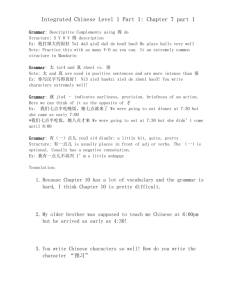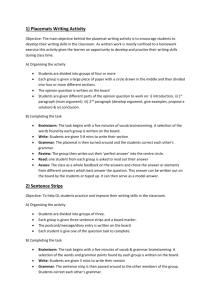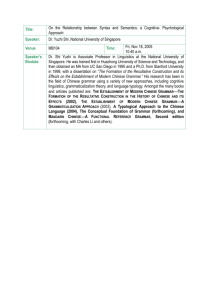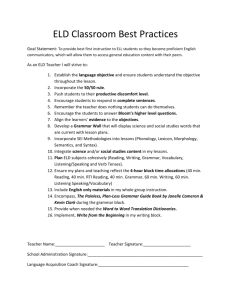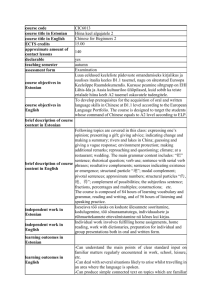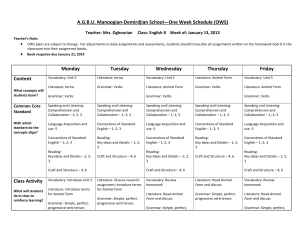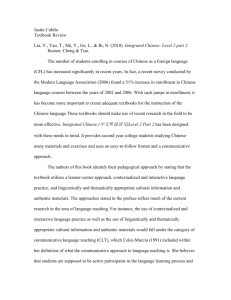Teaching Grammar in Context
advertisement
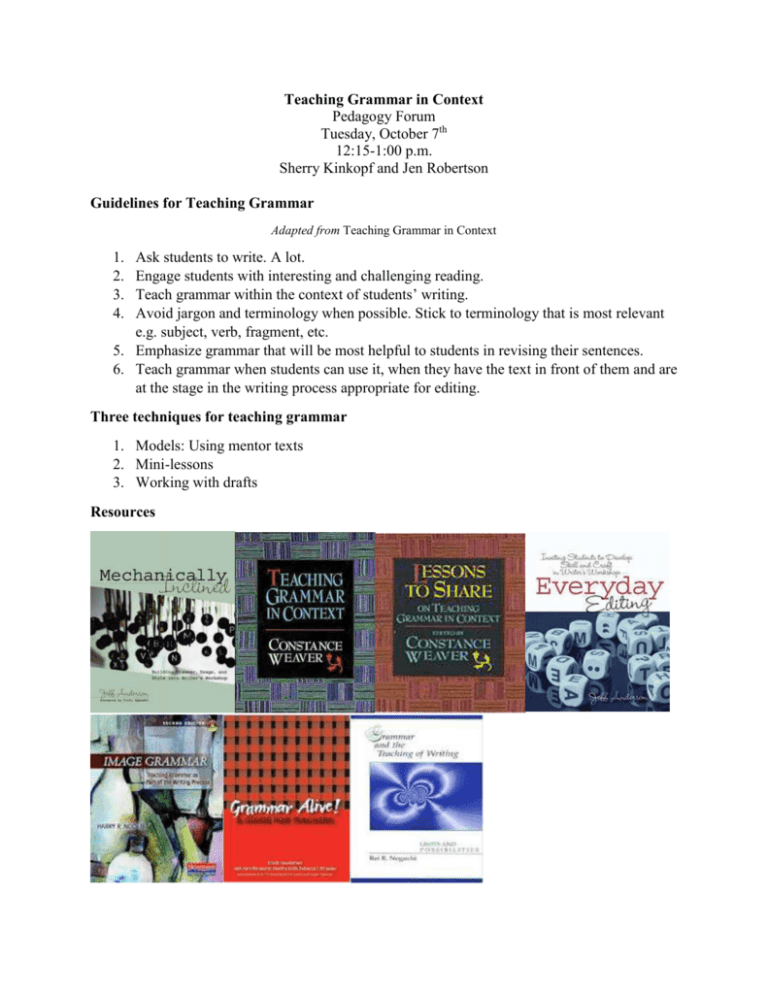
Teaching Grammar in Context Pedagogy Forum Tuesday, October 7th 12:15-1:00 p.m. Sherry Kinkopf and Jen Robertson Guidelines for Teaching Grammar Adapted from Teaching Grammar in Context 1. 2. 3. 4. Ask students to write. A lot. Engage students with interesting and challenging reading. Teach grammar within the context of students’ writing. Avoid jargon and terminology when possible. Stick to terminology that is most relevant e.g. subject, verb, fragment, etc. 5. Emphasize grammar that will be most helpful to students in revising their sentences. 6. Teach grammar when students can use it, when they have the text in front of them and are at the stage in the writing process appropriate for editing. Three techniques for teaching grammar 1. Models: Using mentor texts 2. Mini-lessons 3. Working with drafts Resources Grammar in Context: Teaching the dash with Amy Tan’s “Mother Tongue” Models: Using Mentor texts “Never hesitate to imitate another writer. Imitation is part of the creative process for anyone learning an art of craft. Bach and Picasso didn’t spring full-blown as Bach and Picasso, they needed models. This is especially true of writing.-- William Zinsser Jeff Anderson’s Approach: Notice/Name/Apply 1. Notice: Observe what the writing is doing 2. Interact: Highlight what you notice, discuss 3. Name: Build theories about what you see happening 4. Experiment: Apply something the writer did 5. Reflect: How and where you will use this craft in your writing? I spend a great deal of my time thinking about the power of language -- the way it can evoke an emotion, a visual image, a complex idea, or a simple truth. She reads the Forbes report, listens to Wall Street Week, converses daily with her stockbroker, reads all of Shirley MacLaine's books with ease--all kinds of things I can't begin to understand. And when the doctor finally called her daughter, me, who spoke in perfect English -- lo and behold -- we had assurances the CAT scan would be found, promises that a conference call on Monday would be held, and apologies for any suffering my mother had gone through for a most regrettable mistake. And all the other pairs of words --red, bus, stoplight, boring--just threw up a mass of confusing images, making it impossible for me to sort out something as logical as saying: But I have noticed in surveys -- in fact, just last week -- that Asian students, as a whole, always do significantly better on math achievement tests than in English. So with this reader in mind -- and in fact she did read my early drafts--I began to write stories using all the Englishes I grew up with: the English I spoke to my mother, which for lack of a better term might be described as "simple"; the English she used with me, which for lack of a better term might be described as "broken"; my translation of her Chinese, which could certainly be described as "watered down"; and what I imagined to be her translation of her Chinese if she could speak in perfect English, her internal language, and for that I sought to preserve the essence, but neither an English nor a Chinese structure.
